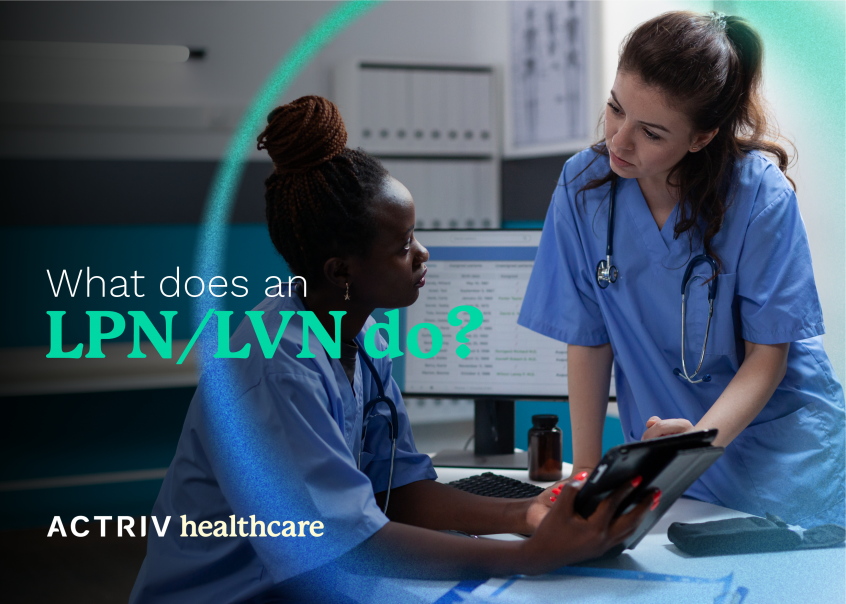Are you considering becoming a licensed practical nurse (LPN) or a licensed vocational nurse (LVN)? If so, you may wonder what exactly the differences are between an LPN and an LVN.
This career path has a few different names, with some subtle distinctions. Understanding the differences can help you decide which career path to pursue.
What is an LPN/LVN?
An LPN (Licensed Practical Nurse) or LVN (Licensed Vocational Nurse) is a healthcare professional who has obtained a nursing license. To become licensed, an individual must complete the necessary educational and clinical requirements to meet their state’s board of nursing standards. There are about 657,200 LPN/LVNs in the U.S., which is expected to increase by 6%, or on average, with the rest of the healthcare industry.
The term LVN is more common in the Southwestern U.S. and West Coast, particularly in California and Texas, while LPN is used in most other states. But regardless of title, both are recognized as healthcare providers who perform essential care duties under the supervision of an RN or LPN/LVN.
What are the differences between an LPN and LVN?
These are the same—they refer to the same role, with just a difference in the title. Salary differences can vary between $49,129 per year for LPNs and $67,720. These differences are often due to location, experience, and other factors. In some states, LPNs are more advanced than LVNs—they may have higher levels of education and access to more career opportunities.
What does an LPN do?
An LPN provides essential patient care duties such as:
- Wound care
- Checking vitals
- Administer medications
- Assist with mobility
- Collect and record patient information
- Provide critical patient care services
In addition to clinical duties, LPNs may also provide patient education and support. Overall, the primary focus of an LPN is to provide safe and competent care to patients in a variety of healthcare settings.
LPN/LVN Specialties
Depending on their experience, some LPN/LVNs may specialize in a particular area. For example, an LPN who works in long-term care facilities may focus on senior care and specialize in helping elderly patients manage chronic conditions or receive IV antibiotics for infections. There are also specialties related to medical-surgical nursing and home health nursing.
The most common specialties for LPN/LVNs are medical-surgical, gerontological, home health, and pediatric nursing. These require a deeper knowledge of the specialty and may require additional certification.
Becoming an LPN/LVN
If you are considering a career as an LPN/LVN, research the educational requirements in your state and any other special certifications that may be needed. Once you have all the necessary academic and clinical experience, you must pass your state’s licensing exam to become a licensed practical or vocational nurse.
Although the differences between an LPN and LVN may seem minor, they’re essential when deciding which career path is right for you. With the rising demand for healthcare workers and the many opportunities to advance your career, becoming an LPN or LVN could be a great choice.
Are you ready to start your career as an LPN? Activ Healthcare is a staffing agency focused on finding the right healthcare professionals for facilities across the country. Contact us today to learn about the different opportunities available to you.

